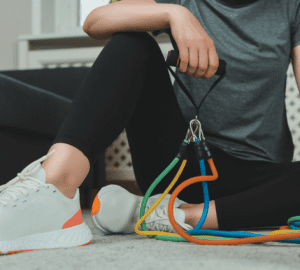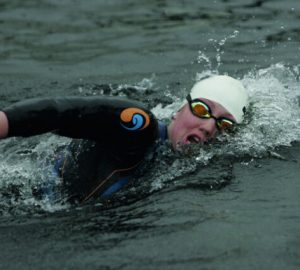
Adam Walker’s top tips for ocean swimming
Ocean swimming can be split into two parts: physical and mental. It is arguably more mental than physical. There are great pool swimmers who wouldn’t venture into open water for many different reasons. Some of these include cold water, marine life, waves, currents, tide, wind, isolation, sickness, fear of failure and self-doubt. I believe that your brain will give in before your body does and if your mind is in the right place you can get far more out of yourself physically than you ever thought possible. I personally worked on the mental side as much as the physical side, training my mind to be strong and to shut out the demons.
Here are my top tips that I used to help me achieve the Oceans Seven.
Top tips to stay focused:
- Don’t talk about failure. If anyone asks you how you feel about the swim, dismiss any negatives and say ‘I know I will get across.’ It is human nature to protect ourselves from disappointment. I found that by being positive, even when at times in reality I wasn’t quite as confident as I made out, I could almost trick my brain to shut out any demons.
- Surround yourself with only positive people. There are people who won’t understand the sport and will question why you are doing it. They may also doubt your capability. However, there are also many like-minded open water swimmers across the country that are supportive and very willing to support you.
- Never say words with a negative association such as ‘cold’. I would constantly tell myself I was warm and comfortable to not allow my mind to focus on it. I once repeated hot/warm/hot for 6 hours thinking nothing else! If you are thinking positive thoughts you can’t be thinking negative ones at the same time. Believe you are capable and keep it simple in your mind. If it’s simple in your mind it’s simple in reality. I believe you get what you focus on.
- Think about why you are doing the swim, i.e. charity or to challenge yourself. Keep reminding yourself of those reasons and how much you want it! I used to leave notes for myself by my bed ‘I am going to swim the Channel!’ I would also listen to motivational CDs.
- Day dream about the feeling of achieving the swim, how accomplished you will feel and how proud everyone will be of you. Focus on the end goal!
- Always have a next swim planned, then the first swim isn’t the only challenge and is part of a process. After the Gibraltar 2-way I had five more swims to think about, so each individual one wasn’t the be all and end all as I had to progress to complete the seven swims.
- Laugh lots and enjoy the experience. It will be tough at times, but if it was easy everyone would be doing it. You are not alone, others are feeling just the way you do. I always try and joke through any nerves and enjoy the moment. Be proud that you are different and unique. Remember this is your destiny and you are in full control of it!
We can’t however forget the physical side as you will need the fitness and capability of swimming the distance you set yourself.
Top tips for preparing your body:
- Plan your training to incorporate pool and open water sessions. I would train five times a week in the pool building up to doing 4-5k a session at three-quarter speed with limited rest of 5-10 seconds rest in between sets. I would also include a longer swim at the weekend and aim to maintain a consistent time over 10-12k. I found working harder over the small sets helped increase my overall speed outside over a longer distance.
- Gym work is also important to help with flexibility and muscular endurance. I would do 4 x 20 repetitions of each exercise focusing on core work as my stroke is powered using these muscles. In addition arm and shoulder strength work – such as pull downs, shoulder presses and seated rows. I would also incorporate some cardio on the bike, stepper and rowing machine to mix it up.
- Having an efficient swim stroke is crucial if you are swimming long distance. I had to change my stroke due to inefficiency which resulted in injury and two operations. I have had a number of qualified medical professionals confirm that a shoulder impingement can occur when arms are consistently rotated over head for long periods of time. There are many tendons that run across the shoulders and impingement is a common issue for regular pool and open water swimmers. I now swim within the body’s natural range to avoid issues and use the core muscles to power the stroke and take the pressure of the shoulders as we do with sports on land such as golf, tennis, kayaking, boxing and even walking. It made sense to me to do what we do on land in the water. (www.oceanwalkeruk.com). It is advisable to have yourself checked out by a swim coach to ensure you are getting the most out of your stroke and you are as efficient as possible.
- Nutrition while training for a long distance swim is another important factor. I would try and eat good carbs and proteins, ideally 40% carbs, 40% protein and 20% fats. Lots of brown pasta and vegetables as well as a variety of fish. Mixed nuts for a snack instead of sugary sweets and chocolate as they give you highs and then lows in terms of energy. You need to eat enough to replace the calories burnt in training. This can be over 1000 calories an hour in open water due to the body having to work harder in the cold temperature. As for during the event, I would have carb powder drinks giving a slow release of energy every 30 minutes to replenish what had been burnt, however I also loved natural foods like homemade soup with chickpeas and carrots which had natural carbs to give me energy as well.
Buy the book
Man vs Ocean by Adam Walker is published by John Blake at £17.99 and is available on Amazon and in all good bookshops.






